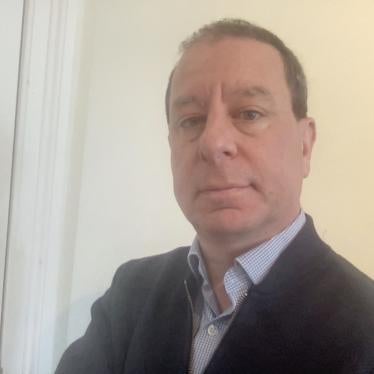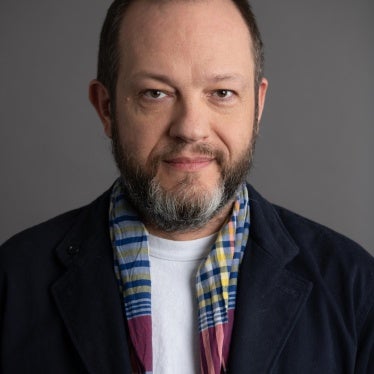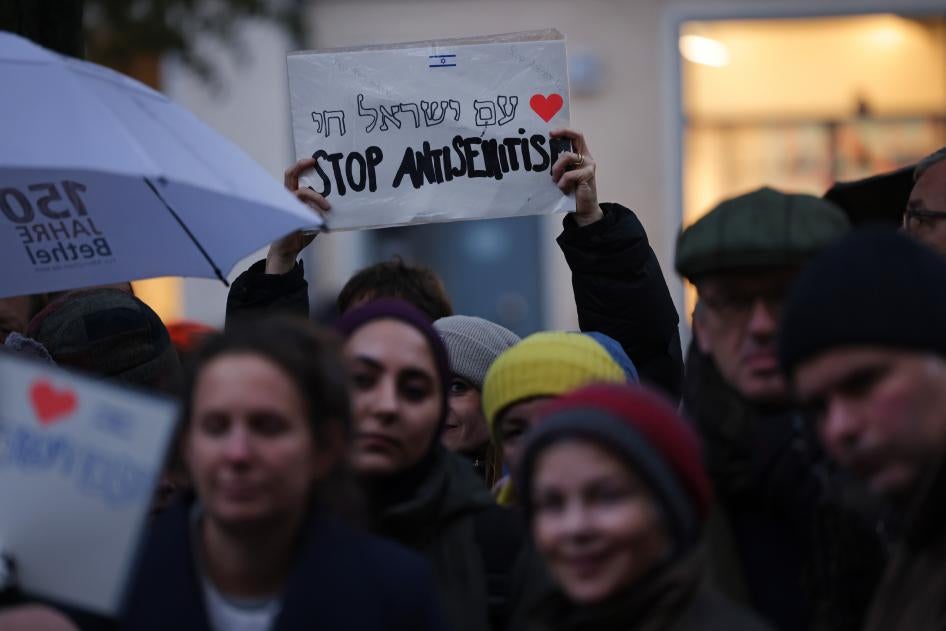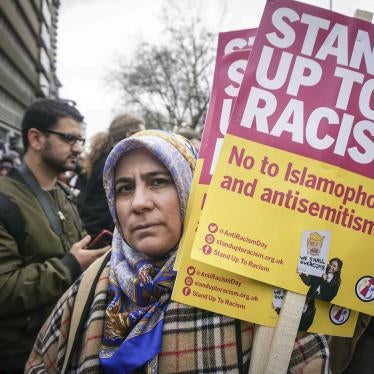A synagogue is firebombed. A rabbi is threatened with a screwdriver on the street. Jewish homes have Stars of David daubed on them as if to mark them out. Visceral reminders that antisemitism in Europe is alive and well.
Numbers tell their own story. A soaring increase in antisemitic incidents since the Hamas-led attack on Israel on 7 October 2023 and subsequent hostilities. Polling showing that many Jews in Europe no longer feel safe. Other surveys suggest that antisemitic attitudes remain prevalent in many European countries.
Policy makers in Europe regularly condemn antisemitism and pledge action to address it. The EU has an entire strategy devoted to tackling antisemitism and fostering Jewish life in Europe. Set against human rights standards, which require states to take effective action to counter hate, violence, and discrimination against stigmatised groups, states seem to be responding. It might be assumed, therefore, that the problem is in hand.
That would be a mistake.
From a practical perspective, it is far from clear that European countries’ policy responses are effective. State responses tend to emphasize the criminal justice system, which is largely reactive, has a less-than-perfect record in addressing antisemitic hate crimes, and has generally failed to build the confidence among Jewish citizens needed for victims to report hate crimes. State responses frequently ignore wider structural challenges that Jews in Europe face or the need to build social solidarity that will marginalise potential abusers.
The policy and public debate in Europe about combating antisemitism often presents the safety and rights of Jews as being threatened by other minorities, feeding division instead of addressing it. And state responses do little to address the fact that prejudice comes from all parts of the political spectrum.
While European Jews are being targeted by the spread of antisemitic hatred linked to the hostilities in Israel and Palestine, European Muslims find themselves marginalised by those who insist that they condemn Palestinian armed groups as a test of their right to live in European society. This approach risks creating the impression the rights and safety of Jews and Muslims in Europe are a zero-sum game and diverting attention from ongoing antisemitism from the far-right and from others in society, as well as other forms of racism in Europe, including against Muslims.
Human rights law requires countries to take positive action to tackle prejudice and discrimination, build protection, and ensure equal treatment. The work of many community organisations shows that it is possible to construct a response to antisemitism, focused on the rights of Jews in Europe, that is long-term, addresses structural challenges and builds bridges.
It is important for the authorities to monitor and respond to hate crimes of all kinds, including antisemitic ones, build confidence among victims to report such crimes, and seek to hold to account those responsible. But focussing only on antisemitic acts after the fact is treating symptoms not causes.
Addressing what drives hate crimes requires a recognition from government and wider society that such acts arise from tolerance of the marginalisation of Jews and other minority groups, and begin with everyday slights targeting Jews at school, or at work, or in the street.
States need to gather evidence to understand the wider experience of Jewish communities, including the everyday prejudice and discrimination they face, and to design public policies that seek to address structural problems. That could involve advancing the education and dialogue required in multicultural societies, and connecting the experience of Jews to others who also experience intolerance and discrimination, building empathy and understanding in place of mistrust and division.
There are plenty of positive examples from civil society in Europe for states to draw on.
Community-based and peer to peer education bring critical thinking plus empathy and openness to relationship building, helping to address harmful assumptions in wider society about Jews and Muslims. Examples include the Coexister/Coexist networks in France and in a number of other European countries, Aktion Suhnezeichen and the Anne Frank Center in Germany and Parallel Histories and Solutions Not Sides in the UK.
Initiatives that promote inclusion and social cooperation, such as KIgA in Berlin, or Nisa-Nashim and Mitzvah Day and Sewa Day in the UK, help build mutual recognition and support across society. The experience of these organisations shows that inclusion is not just about accepting targeted groups but also increasing the tolerance of the larger society around them.
These approaches are inclusive and innovative and can help shift attitudes in the long term. But supporting them and scaling them up is not straightforward. It requires significant investment, research to assess their effectiveness, informed government policymaking and courage to overcome the silos and politicisation that can hamper work on antisemitism.
There are other challenges too. Chief among them are concerns about free expression and assembly, especially around events on Israel and Palestine. Navigating them is made harder when antisemites use hostilities in Israel and Palestine as a cover for expressions of hate against Jews, or conversely when the charge of antisemitism is used to silence legitimate criticism of Israeli state policy or advocacy for Palestinian rights.
Those challenges may not be easy to resolve. But they will be much easier to address with a clear understanding that antisemitism is best tackled alongside other forms of racism, and that it is possible to effectively tackle antisemitism and protect the rights of Jews while upholding speech and assembly rights for pro-Palestinian activists.
In the long term those efforts will be made easier by seeing protecting the rights of Jews and other minorities as a structural challenge that requires significant state investment in social change that begins with education.











